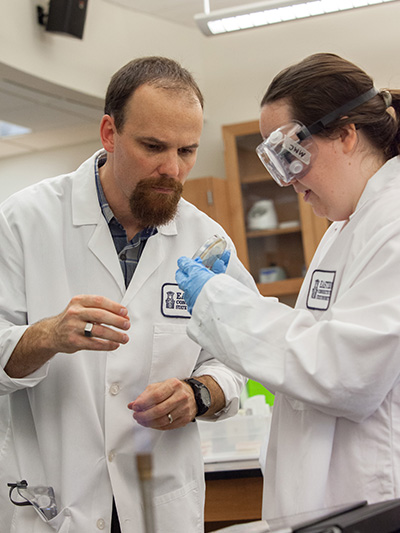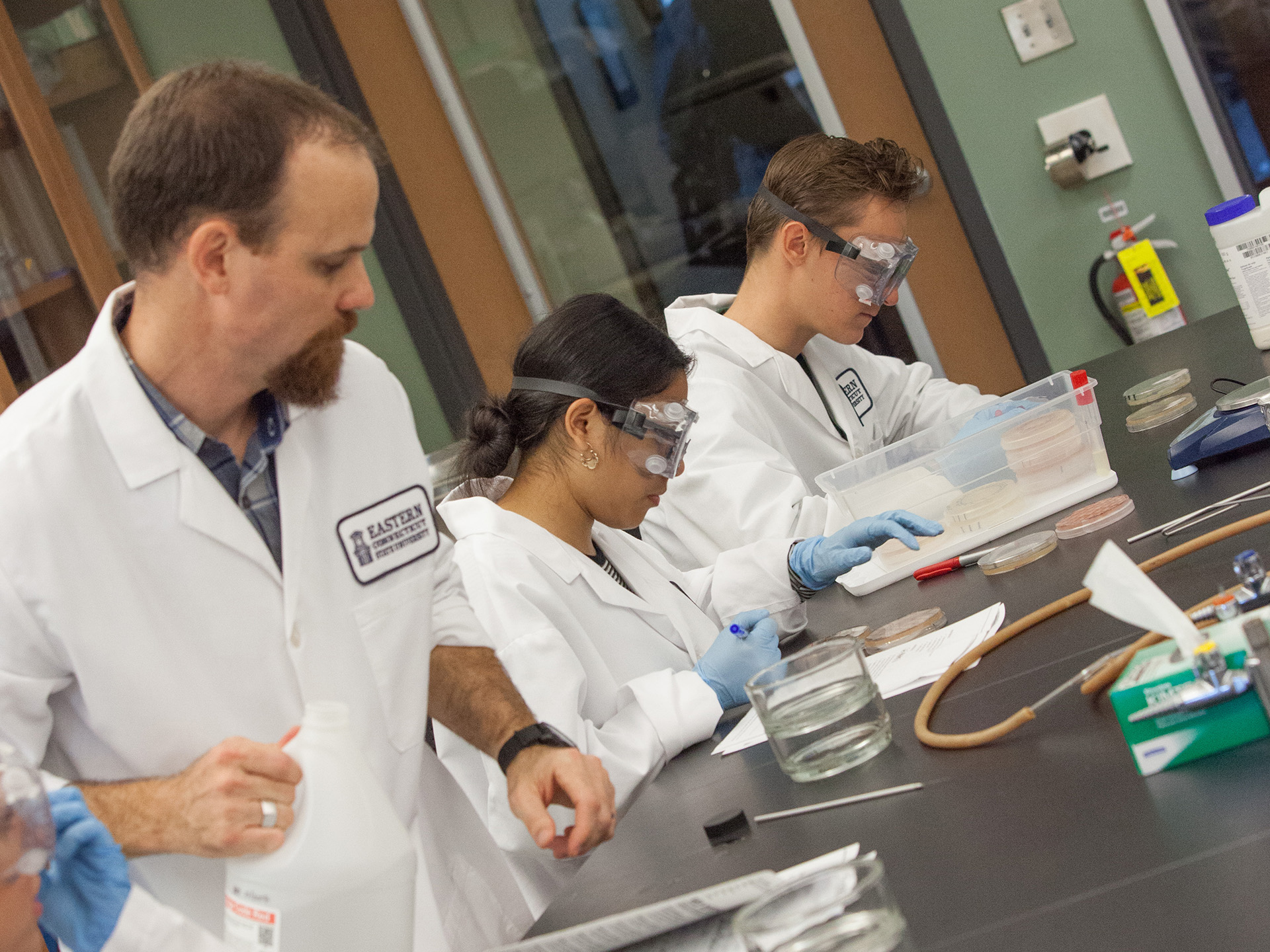- Apply
- Visit
- Request Info
- Give





“In the years just before joining the Biology Department at Eastern, I was a Research Assistant Professor of Biology at UMASS Amherst and an Adjunct Professor of Biology at Holyoke Community College. During this period, I participated in research with collaborators from several universities and the USDA, and I taught courses in General Biology, Microbiology and Human Biology. This was a formative time for me, with opportunities to build my teaching and research skillsets. Most importantly I learned to build positive and lasting relationships with peers and mentors, which still benefit me to this day.”
“Teaching Microbiology and Mycology courses draws most heavily from my research experience and interests, and I integrate research into the lab activities. Being able to share this excitement with a new group each semester is a pleasure and a daily reminder of why I chose this career. In both courses, we work with the public either with businesses or local public schools, which adds a unique element to the class.”
“Over the past six years at Eastern, I have mentored three Honors students and nearly 20 for Independent Study projects, covering a wide range of topics in mycology and microbiology. Some examples include screening mushroom fungi for antibiotics and biofilm inhibitors, fungal genomics for resistance genes, characterizing soil bacteria and investigating viral infections of insects.
These projects span both mycology and microbiology, as well as the overlap between these two disciplines. Being able cultivate such a broad range of research interests is unique to my position at Eastern, and allows me to provide students with unique research experiences.”
“I am deeply curious about how nature works, and I believe that everyone has this innate curiosity. Some of the most rewarding moments have been to witness students begin to ask more and deeper questions or try new experiments in the lab, for the sheer joy of discovering something new and being able to see the natural world from a new angle.”
Some of my most rewarding moments have been to witness students ask deeper questions or try new experiments in the lab, for the sheer joy of discovering something new and being able to see the natural world from a new angle.

“I try to create an environment where students want to come to class, and where they see the relevance to their career and worldview. I vary my teaching modalities to make the content engaging to a group with diverse interests and learning styles, from a variety of backgrounds and career paths. In addition to class discussion of current topics, and interactive lectures, we take time to critically review science literature, develop scientific writing skills and analyze data.”
“In terms of memorable moments, I think back to encouraging students over the years, witnessing their growth over time, and then seeing them walk across the stage at graduation, ready to take on the world. To work with and mentor students through the daily grind, the ups and downs, the personal challenges, over the course of semesters and years, and then see that moment of triumph at graduation, is indeed a special feeling.”
“Take time to hone in on what aspects of biology interest you most. Envision a career that will be fulfilling and keep you excited at what lies around the next corner. Then do some research online about what jobs are available and what skills and training you need to get there. Start early on a path, even if you change course at some point. Reach out to people already working in your chosen field early on, and many times, they will be receptive to answer your questions and give valuable advice.
“Find ways to build relationships and network with people in your field, through internships, events, and other opportunities. You need these sorts of connections, as they will result in unexpected opportunities to advance your career in the future. Take advantage now of resources on campus and online to learn about what skills and experience are required for your career path. Apply for opportunities that you think are a good fit for you, and remember that even just applying for jobs and internships is a skill that you will improve at with practice. Most of all, do not get discouraged! Every perceived failure is bringing you one step closer to your goal.”